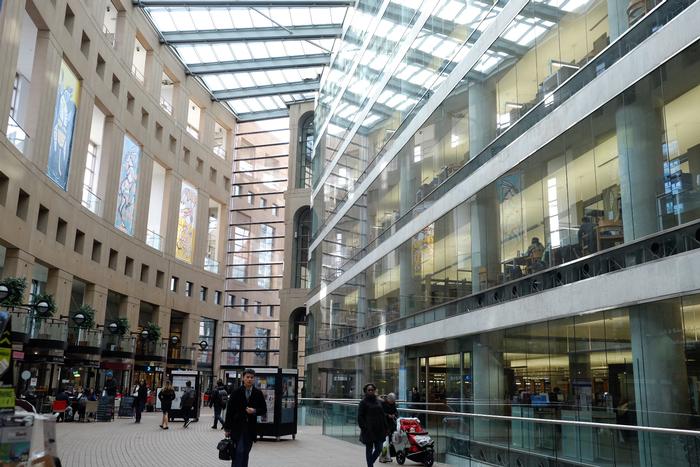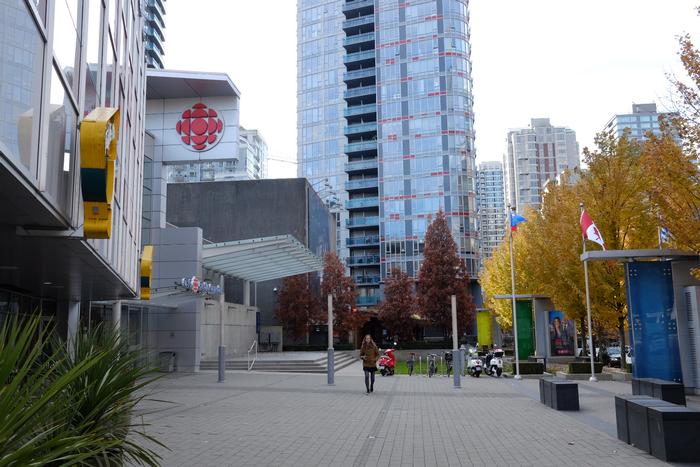Claudio Cabana and Henrike Scholz - ProposalThe Learned City: Civic Buildings, Information Inequality, and the Digital Divide(Preface: This co-authorship was inspired by our intersecting backgrounds: one in architecture, and the other in international relations, with a focus on gender, race and social justice. Civic spaces serve an increasingly complex and diverse public, and must account for the multi-faceted relationships between individuals, their rights, and their social needs.) If knowledge is indeed power, universal access to the internet at one’s fingertips should usher in the end of ignorance, apathy, and lack of education in our liberal societies. However, far from the free-information utopia once heralded, easy and universal access to information has made our societies more unequal, eroded public trust in media and news, and systematically altered the ways in which we learn and develop - not always for the better. Two civic buildings in our city, the Vancouver Central Library and the Canadian Broadcasting Corporation (CBC) Regional Broadcast Centre, serve as critical resources in harnessing the age of information and providing the community with spaces, activities, workshops, and amenities to keep Vancouver’s diverse population learning, growing, and informed. Our essay will discuss the successful social and spatial strategies that are employed within these buildings to serve this purpose, and areas where they fail to meet their full potential. The Vancouver Central Library is an imposing building whose footprint spans an entire block in downtown Vancouver. Its facade employs a postmodern reference to the classical Roman colosseum; gladiator-like, the visitor enters and is confronted with 9 floors of rich library resources. Circulation is facilitated by the spatial configuration, each floor providing a clear set of programs. The spaces within employ strategies to encourage concentration, interaction, contemplation, or simply provide safe spaces for spending time. The library provides diverse workshops that range across topics like computer essentials, job search, podcasting, coding, Indigenous ancestry research, and money budgeting. These services not only provide access to raw information, but guide the public in how to retrieve and understand information wisely and effectively. Many of the library’s resources are targeted to the elderly, teens, immigrants and other vulnerable populations who have the most barriers to access when it comes to information. Across the street from the library is the CBC building, which is comprised of a towering, brutalist, concrete pyramid crowned with space-age-looking satellites and broadcasting equipment. A contemporary addition by emerging firm DIALOG places the recording studio and public atrium as well as outdoor amenities like a music stage, cafe, plaza, art installations, and seating at the level of the sidewalk. These are successful as public spaces in the city, especially in fair weather, but lack meaningful engagement with CBC’s broadcasting services. Our essay will analyze how this building has immense potential to go beyond disseminating information and news to the public, but also facilitate interactions that help the public critically approach and understand the news, social media, and information, and develop a healthy relationship with journalism and politics by borrowing from or even developing strategies with the public library. These two public institutions are taking on very significant social responsibilities to Vancouver’s public. Their social events and services act to enrich and create community through public information, and their buildings accommodate these programs with varying degrees of success. Our research recognizes these successes, and also aims to identify untapped potential to keep building a healthy, vibrant, and well-informed civic infrastructure. Additional Help and InformationAre you in need of assistance? Please email info@berkeleyprize.org. |
|


